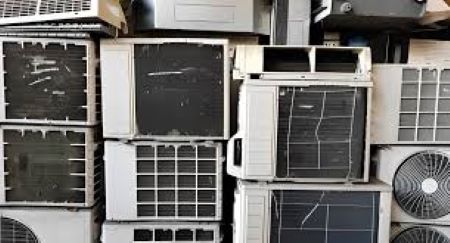The Federal Government has completed a four-day training and certification program for people who work with refrigerators and air conditioners (RAC technicians).
The training was called: “Certification Training on Safe Handling of Natural Refrigerants for RAC Technicians.” It was organized with help from the United Nations Development Programme (UNDP) and the National Association of Refrigeration and Air-Conditioning Practitioners (NARAP).
The first round of training was held from August 18 to 21. It took place at the same time in four cities: Kano, Lagos, Port Harcourt, and Awka. These cities cover the North-West, South-West, South-South, and South-East parts of Nigeria.
A second round of training will be held later this year for technicians in the North-Central and North-East regions.
Before this, 40 RAC technicians were trained in July at the Government Science and Technical College in Garki, Abuja.
Mr. Idris Abdullahi, who is the Director of the National Ozone Office under the Federal Ministry of Environment, spoke at the start of the training in Kano.
He said the program was meant to improve the skills of technicians. The goal is to make sure they can safely use refrigerants that are friendly to the environment and do not contribute much to global warming.
He explained that the certification teaches safe ways to handle refrigerants, how to check for leaks, and how to properly recover refrigerants from cooling systems.
Abdullahi also said that this kind of training is important because natural refrigerants can catch fire, so only trained technicians should handle them.
He mentioned that natural refrigerants like carbon dioxide (CO₂), ammonia, and propane are better for the environment compared to man-made refrigerants.
These man-made refrigerants, like HCFC-22, are being gradually stopped as part of an international project to protect the environment, which the Federal Ministry of Environment is carrying out with the UNDP.
Abdullahi also said that natural refrigerants are being used more in places like cold storage facilities and supermarkets because they are efficient and safer for the planet.
Dr. Leslie Adogame, who leads a group called Sustainable Research and Action for Environmental Development (SRADeV Nigeria), said they support the National Ozone Office in this effort.
He said the training helps Nigeria carry out international agreements like the Montreal Protocol and the Kigali Amendment, which aim to protect the ozone layer and fight climate change.
Jeremiah Ato, who spoke on behalf of Dr. Adogame, said that RAC technicians play a key role in switching to new, eco-friendly cooling methods.
He said technicians are very important because their work affects how well and how safely cooling systems work, and also how they affect the environment.
The training also covered how to deal with customers, workplace safety, how to manage refrigerants over their whole life cycle, and how to use new types of cooling technologies.
Finally, he said this training is important to help reduce the use of harmful refrigerants that cause a lot of global warming.


